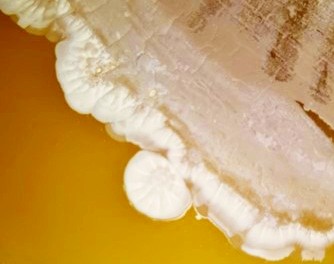Molecular microbiologists at the University of Nottingham are working with biotech firm Cyanetics and Public Health England (PHE) to discover a novel antiviral medication to effectively treat Covid-19.
In its first phase, the Innovate UK-funded project will rapidly screen strains of a harmless bacteria called Streptomyces, which is found in abundance in soil (and is even responsible for the pleasant earthy smell after it rains). Importantly, the microbe has the ability to produce natural compounds (called secondary metabolites) with potent therapeutic benefits.
Already used to produce many well-known antibiotics, Streptomyces exhibit not only antimicrobial but also valuable antiviral properties. This study aims to find a specific strain of Streptomyces that can effectively target SARS-CoV-2 - the novel coronavirus behind the current global pandemic.
To achieve this, scientists from Cyanetics will be using their laboratories in Stevenage to test over 100 Streptomyces species from a unique collection held by the Sustainable Processing Group (SPT) at the University of Nottingham.
Assistant Professor in White Biotechnology, Dr Samantha Bryan is custodian of the Streptomyces strains in question. She will lead a team of SPT researchers to support Cyanetics on the preliminary laboratory investigations in response to COVID-19.
"There is an urgent need to discover new and effective antivirals against SARS-CoV-2. Therefore, given the plethora of secondary metabolites that Streptomyces produce, they're an untapped resource for new antiviral medications. Large-scale screening, such as the one we are undertaking, increases the likelihood of identifying such antivirals."
In phase two of the six-month project, researchers will send a shortlist of some 40 viable compounds that may inhibit in vitro replication of the SARS-CoV-2 virus in cell culture to PHE scientists for further testing towards drug development.







